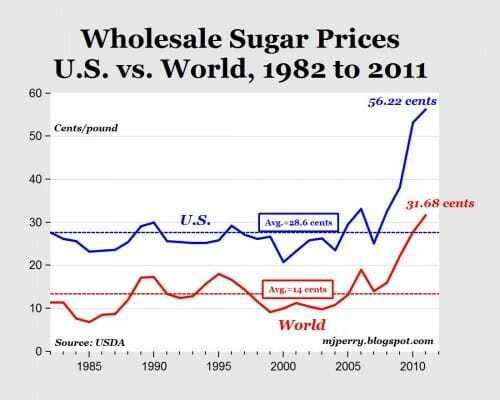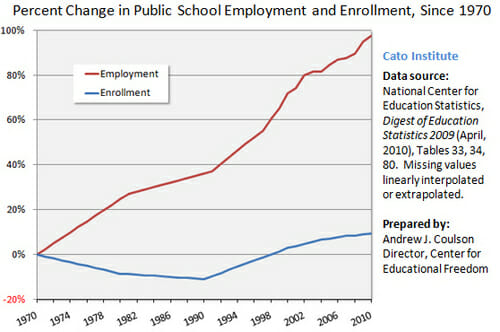The recent naming of GE's Jeffrey Immelt to head a presidential commission on, err, something or other seems to have been an occasion for bipartisan gnashing of teeth about what I call the growth of the American corporate state. I was encouraged by the bipartisan negative reaction from the left, right, and of course the libertarians, the latter of whom have always understood the difference between being pro-capitalism and pro-business.
But all it takes is a nomenclature change of this corporate welfare to "green jobs" or "investment in the future" or "bridge to the future" or similar bullsh*t and suddenly many of the exact same people, at least on the left, are swooning again. Why is it not obvious that, for example, green energy subsidies are just the same old corporate welfare?
Here is one aggravating example
Despite millions in government grants and subsidies, the Manitowoc company President Barack Obama called a glimpse of the future lost $4.2 million last year and cannot promise shareholders it will be profitable in the foreseeable future....
“We may continue to incur further net losses and there can be no assurance that we will be able to increase our revenue, expand our customer base or be profitable,” the report indicates.
Investors have responded to the company’s volatility, and Orion stock has plummeted in the past four years. It closed 2007 at $18.82 a share. By the end of 2010 it was $3.34.
Regardless, President Obama is putting his, and the U.S. taxpayers’, money on companies like Orion.
“It’s important to remember that this plant, this company has also been supported over the years not just by the Department of Agriculture and the Small Business Administration, but by tax credits and awards we created to give a leg up to renewable energy companies,” Obama said at the Orion plant on Wednesday.
The State of Wisconsin has also given its share trying to help Orion to succeed. Since 2005, the state has given the company $350,000 in community development zone tax credits, $506,000 in economic development funds, and $420,000 from the Wisconsin Energy Independence Fund. Plus the company got another $260,000 in stimulus funds for a State Energy project.
In addition to direct aid, public policy has also helped the struggling company. Wisconsin law requires that 10 percent of all electricity sold in the state come from renewable sources by 2015. Orion knows that without government intervention like that, there would be little prospect for the green economy.
“The reduction, elimination or expiration of government mandates and subsidies or economic or tax rebates, credits and/or incentives for alternative renewable energy systems would likely substantially reduce the demand for, and economic feasibility of, any solar photovoltaic and/or wind electricity generating products, applications or services and could materially reduce any prospects for our successfully introducing any new products, applications or services using such technologies,” the SEC report states.
By the way, in 2010, while the government was pouring taxpayer money into Orion, its founder and CEO was pulling his out, selling (by my count of SEC filings) 130,000 shares, despite equity prices that were at a five year low. It is dangerous to draw conclusions form insider sales (we don't know what personal financial issues may be driving their actions) but it is interesting that the president and founder is taking the exact opposite point of view on the company's prospects than is President Obama.


